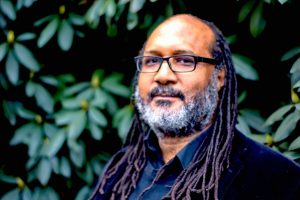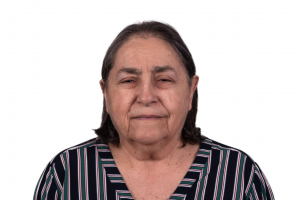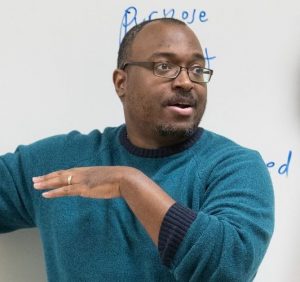 The event has been delayed this year due to the pandemic, and also will take place virtually for that reason. To attend virtually, send an rsvp to: personalist61@gmail.com. You will receive a link just prior to the start of the day’s events, which begins at 11 AM central time (USA).
The event has been delayed this year due to the pandemic, and also will take place virtually for that reason. To attend virtually, send an rsvp to: personalist61@gmail.com. You will receive a link just prior to the start of the day’s events, which begins at 11 AM central time (USA).
The AIPCT and the Foundation for the Philosophy of Creativity are pleased to announce our fifth Lewis E. Hahn Memorial Lecture and the annual William S. Minor Lecture. Our Hahn Lecturer this year is Professor Lewis R. Gordon, whose lecture is “Philosophical Autobiography and Living Thought.” As is our custom, we will have a full day of talks in honor of our main speaker, with events at 11, 2, 4, and 6:30, central time.
The first event of the day is the annual William S. Minor Lecture in which the recipient of the Foundation for the Philosophy of Creativity’s Dissertation Fellowship will present his research. The lecturer this year comes from Jordan Kokot, Department of Philosophy at Boston University. His lecture is: “Immediacy, Presence, and Attention: Schutz, Tengelyi, and Merleau-Ponty on the Phenomenology of Creative Time.”
This event is also co-sponsored by the Philosophy Department of Southern Illinois University Carbondale, and its Center for Dewey Studies.
Schedule (all Saturday, September 12, 2020)
The Third Annual William S. Minor Lecture
11:00AM Jordan Kokot, Boston University, “Immediacy, Presence, and Attention: Schutz, Tengelyi, and Merleau-Ponty on the Phenomenology of Creative Time.”
The Fifth Lewis E. Hahn Memorial Lecture, Honoring the Work of Lewis R. Gordon
2:00 PM Dwayne Tunstall, Grand Valley State University, ““Curing Black Melancholia with Africana Philosophy”
4:00 PM Marilyn Nissim-Sabat, Lewis University, “Writing as Praxis: The Work of Lewis Gordon”
6:30 PM Lewis R. Gordon, University of Connecticut “Philosophical Autobiography and Living Thought”
Abstracts:
Lewis R. Gordon, University of Connecticut, “Philosophical Autobiography and Living Thought.” Lewis Hahn added something special when he became editor of the Library of Living Philosophers series. Instead of a mere Festschrift endeavor, the series brought to the world living conversations on philosophical thought through the living thought of the honored philosopher. The addition of an intellectual autobiographical statement by the honoree also offered ongoing reflections on what constitutes a philosophical biography. This is no easy task, since, as we know, philosophers are encouraged to step out of the way of their thought. This lecture will explore this question of what constitutes a philosophical biography and, in the spirit of the great series Hahn edited, the meaning of “living thought.” The importance of these two themes connects with a problem on which I have been meditating a quarter of a century and a solution I offer—disciplinary decadence and teleological suspensions of disciplinarity. Within philosophy, this idea requires also a teleological suspension of philosophy, which is the paradox of building new philosophy through going beyond philosophy.
Marilyn Nissim-Sabat, Lewis University, “Writing as Praxis: A Reading of Lewis Gordon’s Existentia Africana” The term praxis is of course of Greek origin; it means to do, or practice, originally, restricted, as it were, to free people. In this presentation, the term will denote the meaning it attained beginning with Marx, for whom praxis meant not simply, or not only, practice, doing; more importantly, it meant, and means today, not just action; it means rather revolutionary activity, action directed toward revolutionary change in society. As such, praxis should also be understood, not abstractly, as activity guided by or directed by a theory of revolutionary change; it is rather, an actual synthesis of theory and practice, a manifestation of their inseparability. I will discuss the essays in Existentia Africana as praxis, as a deployment of ideas inseparable from revolutionary practice. This is not at all a matter of Gordon telling us to do this or that in order to bring about revolutionary change. It is rather Gordon invoking in us the actual lived evidence of our humanity which itself constitutes the desire for revolutionary change, for, “we have nothing to lose but our chains.” The reference in the previous sentence to “lived experience” is intended to bring forward the element or moment of Gordon’s method that is made explicit in most of his writings, and which informs or suffuses his revolutionary praxis as an existential project: the method of transcendental phenomenology.
Dwayne Tunstall, Grand Valley State University, ““Curing Black Melancholia with Africana Philosophy.” We currently live in a time when Afropessimism seems to be an absurd yet plausible account of Black existence in the United States and elsewhere. It seems absurd because Black people today are not literally slaves. There are even some Black people, including those biracial or multiracial people who identify themselves as Black, who have risen to the highest echelons of western and westernized societies. Yet, they reached their status due in large part to their being recognized by white people, particularly well-networked and wealthy white people. What makes Afropessimism plausible is that Black success is often dependent on white recognition, or at least on white people not interfering in Black people’s lives. This is a problem for any Black person, such as myself, who does not believe that their lives are meaningful due to white recognition. However, Afropessimism itself is not the problem; it is the most recent symptom of a disease that many Black people living in western and westernized societies have suffered from for centuries. This disease is what Nathalie Etoke and Lewis R. Gordon call Black melancholia. This disease afflicts Black people who mistakenly believe that their intellectual, social, and cultural contributions are meaningful only to the extent that they are recognized as being meaningful by white people and to white people. In this talk I propose that Africana philosophy in general and Gordon’s philosophy in particular can be used to cure this disease.
The Annual William S. Minor Lecture: Jordan Kokot, Boston University, “Immediacy, Presence, and Attention: Schutz, Tengelyi, and Merleau-Ponty on the Phenomenology of Creative Time.” The creative effort of producing a text or a work of art present us with a curious puzzle. On the one hand, creative processes appear to be deliberative, calculated, and carefully orchestrated expressions of personality, skill, and insight, and generally indicate highly organized systematic thought generated by the mental workings and life-history of the person creating. On the other, artists regularly report that moments of composition are uncontrollable, seemingly random, ecstatic explosions of emotion and care, the root of which can only be analyzed after the creative product is completed. They advance beyond the realm of what already exists or can be fully predicted into the realm of the sometimes radically new. Comparatively little has been said about the temporal features of creative processes, about how time characterizes and is shaped by creative experiences. I attempt to remedy some of this dearth by providing a rough sketch of a phenomenological account of creative temporality derived from Alfred Schutz “On Multiple Realities” (1947), László Tengelyi The Wild Region of Life-History (1998) and Maurice Merleau-Ponty’s Phenomenology of Perception (1947). Creative moments should be understood be special sorts of destinal events that occur at the edges between finite provinces of meaning, where the poet, in the midst of a disruption of what might be called her ordinary sense of time, is able to experiment with the possibilities of lived temporality by “backhoeing” into the otherwise obscure and buried sediment of the past, all with the aim to build new provinces of meaning, and, in so doing, allow for the actualization of new ways of structuring time for herself and her audience.
About Our Speakers:
 Lewis R. Gordon is an Afro-Jewish philosopher, political thinker, educator, and musician (drums, other percussive instruments, and piano) who holds a Ph.D. in philosophy from Yale university. Gordon’s research in philosophy is in Africana philosophy, philosophy of existence, phenomenology, social and political philosophy, philosophy of culture, race, and racism, aesthetics, philosophy of education, philosophy of science, philosophy of psychiatry, and philosophy of medicine, psychiatry, and psychoanalysis. As a public intellectual, Gordon has written for a variety of political forums, newspapers, and magazines, and has lectured and organized workshops and political meetings across the globe. He is Professor and Head of the Philosophy Department at UCONN-Storrs, where he also has affiliations in Judaic Studies, Caribbean and Latinx Studies, Asian and Asian American Studies, Women’s, Gender, and Sexuality Studies, and Global Studies. His visiting appointments include Philosophy and Government at the University of the West Indies at Mona, Jamaica, and Honorary Professor in (UHURU) the Unit for the Humanities at the university currently known as Rhodes in South Africa, where he was formerly the Nelson Mandela Distinguished Visiting Chair in Political and International Studies (2014, 2015). His previous appointments include the 2018–2019 Boaventura de Sousa Santos Chair in the Faculty for Economics at the University of Coimbra, Portugal; the European Union Chair in Euro-Philosophy at the Université Toulouse Jean Jaurès, France (2014–2019); Writer-in-Residence at the Birkbeck School of Law at the University of London (2016), the Laura H. Carnell Professor of Philosophy at Temple University (2004–2013); Professor of Africana Studies, Contemporary Religious Thought, and Modern Culture and Media at Brown University (1996–2004); Visiting Professor of African and African American Studies at Yale University (1999), and Philosophy and African American Studies at Purdue University (1993–1996). His major works include Bad Faith and Antiblack Racism (Humanities Press, 1995), which will appear in a revised 25th anniversary edition with a foreword by Mabogo More in the Rowman & Littlefield International catalog in 2020; Fanon and the Crisis of European Man, which will appear in a 25th anniversary edition with commentary by an international group of scholars under Routledge in 2020; Her Majesty’s Other Children (Rowman & Littlefield, 1997), which won the Gustavus Meyer Award for Outstanding work on Human Rights; Existentia Africana (Routledge, 2000); Disciplinary Decadence (Routledge, 2006); An Introduction to Africana Philosophy (Cambridge UP, 2008); What Fanon Said (Fordham UP, 2015); Freedom, Justice, and Decolonization (Routledge, 2020); and, with Jane Anna Gordon, A Companion to African-American Studies (Blackwell, 2006); Not Only the Master’s Tools (Routledge, 2006); Of Divine Warning (Routledge, 2009); and, with Fernanda Bragato Frizzo, Geopolitics and Decolonization (Rowman & Littlefield International, 2017); His forthcoming books are 论哲学、去殖民化与种族 (“On Philosophy, Decolonization, and Race”), trans. Li Beilei (Wuhan, China: Wuhan University Press), and Fear of Black Consciousness (Farrar, Straus and Giroux in the US and Penguin in the UK). He co-edits, with Jane Anna Gordon, the book series Global Critical Caribbean Thought and the journal Philosophy and Global Affairs. He is Honorary President of the Global Center for Advanced Studies and a former president of the Caribbean Philosophical Association, for which he now serves as its chairperson of awards and global collaborations.
Lewis R. Gordon is an Afro-Jewish philosopher, political thinker, educator, and musician (drums, other percussive instruments, and piano) who holds a Ph.D. in philosophy from Yale university. Gordon’s research in philosophy is in Africana philosophy, philosophy of existence, phenomenology, social and political philosophy, philosophy of culture, race, and racism, aesthetics, philosophy of education, philosophy of science, philosophy of psychiatry, and philosophy of medicine, psychiatry, and psychoanalysis. As a public intellectual, Gordon has written for a variety of political forums, newspapers, and magazines, and has lectured and organized workshops and political meetings across the globe. He is Professor and Head of the Philosophy Department at UCONN-Storrs, where he also has affiliations in Judaic Studies, Caribbean and Latinx Studies, Asian and Asian American Studies, Women’s, Gender, and Sexuality Studies, and Global Studies. His visiting appointments include Philosophy and Government at the University of the West Indies at Mona, Jamaica, and Honorary Professor in (UHURU) the Unit for the Humanities at the university currently known as Rhodes in South Africa, where he was formerly the Nelson Mandela Distinguished Visiting Chair in Political and International Studies (2014, 2015). His previous appointments include the 2018–2019 Boaventura de Sousa Santos Chair in the Faculty for Economics at the University of Coimbra, Portugal; the European Union Chair in Euro-Philosophy at the Université Toulouse Jean Jaurès, France (2014–2019); Writer-in-Residence at the Birkbeck School of Law at the University of London (2016), the Laura H. Carnell Professor of Philosophy at Temple University (2004–2013); Professor of Africana Studies, Contemporary Religious Thought, and Modern Culture and Media at Brown University (1996–2004); Visiting Professor of African and African American Studies at Yale University (1999), and Philosophy and African American Studies at Purdue University (1993–1996). His major works include Bad Faith and Antiblack Racism (Humanities Press, 1995), which will appear in a revised 25th anniversary edition with a foreword by Mabogo More in the Rowman & Littlefield International catalog in 2020; Fanon and the Crisis of European Man, which will appear in a 25th anniversary edition with commentary by an international group of scholars under Routledge in 2020; Her Majesty’s Other Children (Rowman & Littlefield, 1997), which won the Gustavus Meyer Award for Outstanding work on Human Rights; Existentia Africana (Routledge, 2000); Disciplinary Decadence (Routledge, 2006); An Introduction to Africana Philosophy (Cambridge UP, 2008); What Fanon Said (Fordham UP, 2015); Freedom, Justice, and Decolonization (Routledge, 2020); and, with Jane Anna Gordon, A Companion to African-American Studies (Blackwell, 2006); Not Only the Master’s Tools (Routledge, 2006); Of Divine Warning (Routledge, 2009); and, with Fernanda Bragato Frizzo, Geopolitics and Decolonization (Rowman & Littlefield International, 2017); His forthcoming books are 论哲学、去殖民化与种族 (“On Philosophy, Decolonization, and Race”), trans. Li Beilei (Wuhan, China: Wuhan University Press), and Fear of Black Consciousness (Farrar, Straus and Giroux in the US and Penguin in the UK). He co-edits, with Jane Anna Gordon, the book series Global Critical Caribbean Thought and the journal Philosophy and Global Affairs. He is Honorary President of the Global Center for Advanced Studies and a former president of the Caribbean Philosophical Association, for which he now serves as its chairperson of awards and global collaborations.
 Marilyn Nissim-Sabat is Emeritus Professor of Philosophy at Lewis University, and is a psychotherapist in private practice. She is the author of a book, Neither Victim nor Survivor: Thinking towards a New Humanity (2009), and of numerous articles and book chapters in philosophy, critical race and gender theory, and psychoanalysis. Her most recent publication is “Revisioning White Privilege,” chapter 3 in I Don’t See Color: Personal and Political Perspectives on White Privilege, ed. by Bettina Bergo and Tracey Nicholls, (Lexington, 2015). Recently she has published “A Phenomenological and Psychodynamic Reflection on Freedom and Oppression Following the Guiding Thread of Lewis. R, Gordon’s Existential Phenomenology of Oppression,” in the important new collection, Black Existentialism: Essays on the Transformative Thought of Lewis R. Gordon (Atlantic Highlands, NJ: Rowman and Littlefield, 2019), 2019.
Marilyn Nissim-Sabat is Emeritus Professor of Philosophy at Lewis University, and is a psychotherapist in private practice. She is the author of a book, Neither Victim nor Survivor: Thinking towards a New Humanity (2009), and of numerous articles and book chapters in philosophy, critical race and gender theory, and psychoanalysis. Her most recent publication is “Revisioning White Privilege,” chapter 3 in I Don’t See Color: Personal and Political Perspectives on White Privilege, ed. by Bettina Bergo and Tracey Nicholls, (Lexington, 2015). Recently she has published “A Phenomenological and Psychodynamic Reflection on Freedom and Oppression Following the Guiding Thread of Lewis. R, Gordon’s Existential Phenomenology of Oppression,” in the important new collection, Black Existentialism: Essays on the Transformative Thought of Lewis R. Gordon (Atlantic Highlands, NJ: Rowman and Littlefield, 2019), 2019.
 Dwayne Tunstall is Associate Professor of Philosophy at Grand Valley State University. His areas of specialization are African American philosophy, classical American philosophy (especially Josiah Royce), and existentialism. His research interests include moral philosophy, phenomenology, philosophy of religion, and social and political philosophy. He is the author of two books: Yes, But Not Quite: Encountering Josiah Royce’s Ethico-Religious Insight (Fordham University Press, 2009) and Doing Philosophy Personally: Thinking about Metaphysics, Theism, and Antiblack Racism (Fordham University Press, 2013). He has published over twenty journal articles and book chapters on a variety of topics, including diversity in education, idealism, race and racial identity, religion, and social philosophy. He has given presentations on these topics at professional conferences, colloquia, and public lectures. He is currently the secretary of the Society for the Advancement of American Philosophy and Executive Director of Philosophy Born of Struggle. He is also an editor of the Transactions of the Charles S. Peirce Society and co-editor of the American Philosophical Association Newsletter on Philosophy and the Black Experience.
Dwayne Tunstall is Associate Professor of Philosophy at Grand Valley State University. His areas of specialization are African American philosophy, classical American philosophy (especially Josiah Royce), and existentialism. His research interests include moral philosophy, phenomenology, philosophy of religion, and social and political philosophy. He is the author of two books: Yes, But Not Quite: Encountering Josiah Royce’s Ethico-Religious Insight (Fordham University Press, 2009) and Doing Philosophy Personally: Thinking about Metaphysics, Theism, and Antiblack Racism (Fordham University Press, 2013). He has published over twenty journal articles and book chapters on a variety of topics, including diversity in education, idealism, race and racial identity, religion, and social philosophy. He has given presentations on these topics at professional conferences, colloquia, and public lectures. He is currently the secretary of the Society for the Advancement of American Philosophy and Executive Director of Philosophy Born of Struggle. He is also an editor of the Transactions of the Charles S. Peirce Society and co-editor of the American Philosophical Association Newsletter on Philosophy and the Black Experience.
 Jordan Kokot, William S. Minor Lecturer, 2020 Jordan is a Ph.D. student in philosophy at Boston University, writing under the direction of Dan Dahlstrom and Allen Speight. Jordan works at the intersection of 19th & 20th century philosophy (esp. Nietzsche, Heidegger, and Merleau-Ponty), phenomenology, the philosophy of art, and the philosophy of time. He received my M.A. in Philosophy from Boston University in 2013, writing a thesis on Nietzschean theories of governance. His dissertation is entitled The Phenomenology of Time-Consciousness in Art: Merleau-Ponty, Temporality, and the Rupture of Freedom. In addition to the 2020 dissertation fellowship from FPC, Jordan has been awarded several research and teaching grants. He organizes and runs the multidisciplinary Boston University Aesthetics and Philosophy of Art Reading Group and is a member of the Boston Phenomenology Circle. He also works and teaches in ethics, the philosophy of technology, and moral psychology, particularly, regarding comparability problems as they pertain theories of well-being and the relationship between value and time-consciousness.
Jordan Kokot, William S. Minor Lecturer, 2020 Jordan is a Ph.D. student in philosophy at Boston University, writing under the direction of Dan Dahlstrom and Allen Speight. Jordan works at the intersection of 19th & 20th century philosophy (esp. Nietzsche, Heidegger, and Merleau-Ponty), phenomenology, the philosophy of art, and the philosophy of time. He received my M.A. in Philosophy from Boston University in 2013, writing a thesis on Nietzschean theories of governance. His dissertation is entitled The Phenomenology of Time-Consciousness in Art: Merleau-Ponty, Temporality, and the Rupture of Freedom. In addition to the 2020 dissertation fellowship from FPC, Jordan has been awarded several research and teaching grants. He organizes and runs the multidisciplinary Boston University Aesthetics and Philosophy of Art Reading Group and is a member of the Boston Phenomenology Circle. He also works and teaches in ethics, the philosophy of technology, and moral psychology, particularly, regarding comparability problems as they pertain theories of well-being and the relationship between value and time-consciousness.



